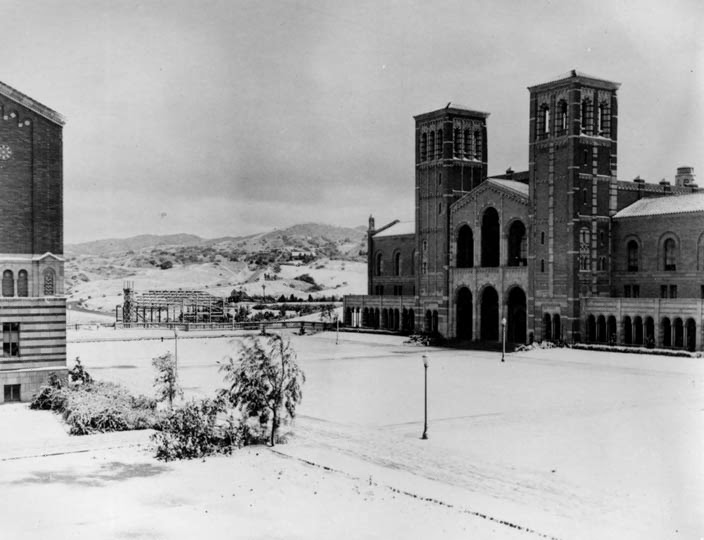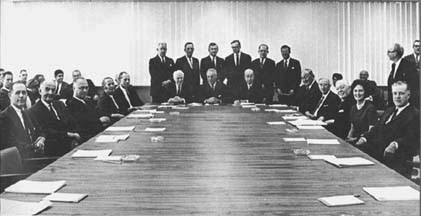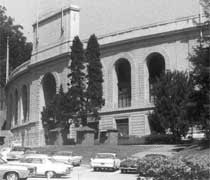 |
| Snow at UCLA in 1932 |
The governor is due to give his State of the State address today. What, if anything, he will say that might have a connection to UC and higher ed is unknown. The Regents are also meeting today (and tomorrow).
Inside Higher Ed today is running a list of average annual snowfalls (in inches) at selected universities. So whatever happens at the State of the State or the Regents meeting (or if you have followed weather reports for other parts of the country today), remember that things could be worse:
1. Michigan Technological University: 200
2. Syracuse University and SUNY Oswego: 124
3. University of Rochester: 99
4. State University of New York at Buffalo: 94
5. University of Minnesota at Duluth: 86
6. University of Vermont: 81
7. Southern New Hampshire University: 69
8. Western Michigan University: 67
9. Cornell University: 65
10. University of Alaska at Fairbanks: 62
Full story at http://www.insidehighered.com/quicktakes/2014/01/22/10-snowiest-college-campuses-sort
UPDATE: Yours truly was able to hear most of the governor’s speech. Why “most of”? Because the calchannel system evidently was overwhelmed by folks tuning in on the web. So, again, a cautionary note on the technology solutions to higher ed costs is warranted. The speech did mention UC in connection with research. Other than that reference, however, the governor focused on fiscal prudence, debt, drought, K-12 funding changes that divert resources to disadvantaged students, “subsidiarity” (mainly local assumption of prisoners), environment and greenhouse gas, and poverty.
At the same time the governor was speaking, the UC Regents web broadcast also had problems. Parts of the public comment session I heard involved fossil fuel divestment, complaints about anti-Israel lectures and course credit for such lectures, and sexual assaults at Berkeley. I heard part of UC president Napolitano’s report. Among the topics: cap on UCOP staff, consultants, travel. There was a reference to development of a new funding model for tuition to be unveiled in the spring and “efficiency” initiatives. Academic Senate chair William Jacobs spoke mainly on UC undergraduate programs.
The Committee on Finance heard a report on federal budget issues, particularly the squeeze on research funding. Federal funds also flow to UC through student aid, Medicare at the hospitals, etc. The latest budget deal in Washington was seen as a positive. As far as the state budget proposal of the governor is concerned, UCOP noted (as it has before) the CSU’s pension is taken car of by the state via CalPERS but not UC’s. It was noted that the governor now lists the UC pension as part of state debt and the Legislative Analyst is moving toward that position. Since the Leg Analyst is projecting more dollars than the governor, perhaps – at the time of the May revise – UC might get more funding and put some of it in the pension fund. The tuition freeze was noted as well as lack of an explicit enrollment growth factor in the governor’s budget.
The Committee on Health Services looked at a UCLA health take-over of a program previously run by USC. It’s not on the agenda documents, as far as I can tell – at least as of today. There is also a proposal for a joint lab in China that would conduct clinical trials. Significant skepticism was expressed by regents about the risks entailed and having UCLA’s name linked to an outside entity – a private firm. [Only one regent seemed to want to ask whether clinical trials in China are subject to the same kinds of controls, regulations, and human rights protections, that exist in the US. UCLA says it will apply US standards.]
A review of the nuclear labs followed. It was reported that past-due pension contributions for the labs had been partly paid and that the rest is expected due to the Washington budget deal.
Note: There is a notice on the governor’s website that he will attend the afternoon session of the Regents meeting. http://www.gov.ca.gov/news.php?id=18374
===========
Yours truly is teaching this quarter and his ability to record and post audio of Regents meetings is limited by other commitments. Nonetheless, it will (eventually) be done because the Regents continue their policy of archiving meetings only for 1 year. Presumably, calchannel will have a link to a recording of the governor’s speech so you should have access to that event soon.









